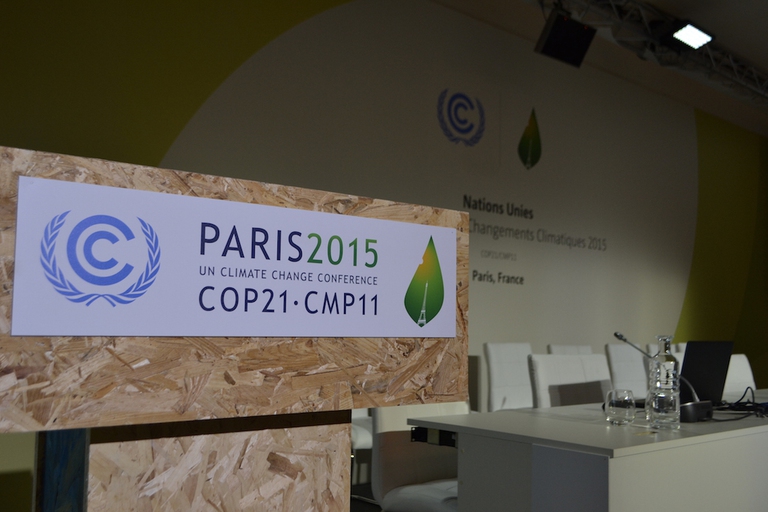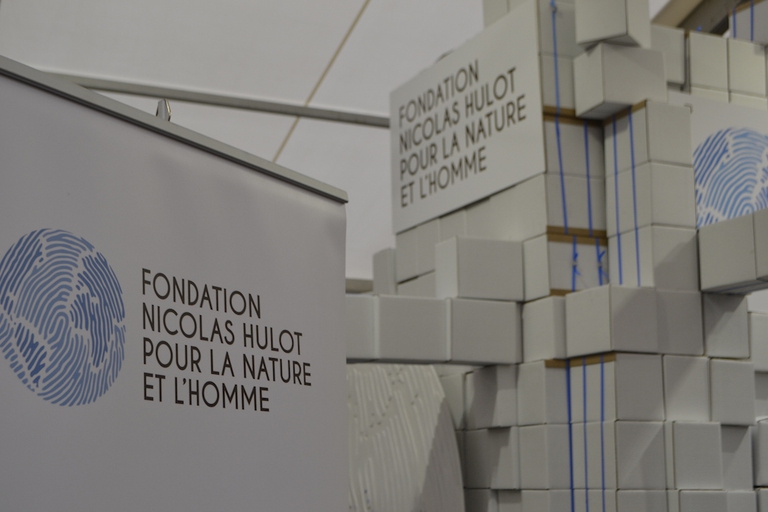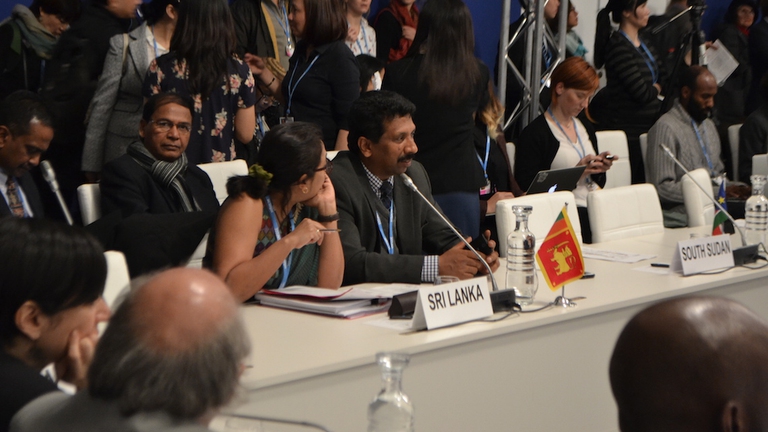
The 26th edition of the United Nations Climate Change Conference, COP26, will be held in Glasgow, Scotland in November 2020. The pre-COP will take place in Milan, Italy.
Al terzo giorno di discussioni, alla Cop 21 di Parigi la bozza di accordo è ancora in alto mare. Le delegazioni cambiano metodo di lavoro.
Let’s stop: this is not the way. After 3 days of negotiations at the United Nations Climate Change Conference, COP21, delegations of 196 countries have suddenly decided to change the way they’re working. Delegates are asked to complete the draft agreement by Saturday 5 December, in order to pass the mantle of responsibility to the ministers nominated by each country. The ministers, in turn, during the second week of talks will have to refine the draft, in order to reach an agreement by Friday 11 December, the day the COP21 will end.
But time is running out. And if the draft is not improved, ministers will have lot to do. It’s not a coincidence, in fact, that NGOs expressed their concern about the first draft made of 55 pages, which had about 200 “Options” and 1,200 locutions between square brackets (it means that they need to be further discussed).
Apparently, although the heads of state have opened the conference using fine words, many countries seem to have set limitations they are not willing to renounce to. For instance, in the first draft agreement, Article 2, option 1 reads that the purpose of the agreement is to “hold the increase in the global average temperature [below 2 °C][below 1.5 °C][well below 2 °C][below 2 °C or 1.5 °C] [below 1.5 °C or 2 °C][as far below 2°C as possible]”, and so on.
The situation got even worse in the night between 2 and 3 December. During a new compilation, the pages decreased from 55 to 50, but options increased to 250, and locutions to be discussed are now 1,400. The debate thus stopped on plurals and singulars, as well as on the use of “should” or “shall”. “Intensive negotiations and many drafts are needed,” said Mariagrazia Midulla, WWF Italia Responsible of Climate and Energy. “There’s still a long way to go”.
“South Africa and China – explains a representative of the Nicolas Hulot foundation – have asked to stop and drastically change the working method. The proposal has been welcomed: the numerous “spin-off” meetings, in charge of assessing single issues, will be limited to 12. Indeed, we know that too many options left open during the first week of talks led the 2009 Copenhagen conference to fail. There are 48 hours left. We thus need a different, cross approach”.
Above all “talks must be accelerated,” as was pointed out by French Foreign Minister Laurent Fabius. Concern is palpable at Le Bourget. One of the most complicated issues is funding: the group of G77 (representing 134 developing countries) asked guarantees on rich countries to fulfil their pledges.
Saudi Arabia trying to block reference to 1.5 degrees in draft decision/ADP group, saying it plays to media; not science. #COP21 #climate
— Elizabeth May (@ElizabethMay) 2 Dicembre 2015
There’s more: according to Canadian ecologist deputy Elizabeth May, some are significantly slowing down negotiations. In particular, Saudi Arabia doesn’t accept the proposal to limit the global average temperature rise to 1.5°C demanded by the most vulnerable countries. Moreover, India, country that strongly depends on coal, dug its feet on the term “decarbonisation”. So it seems that the future of our planet also depends on lexical issues.
Siamo anche su WhatsApp. Segui il canale ufficiale LifeGate per restare aggiornata, aggiornato sulle ultime notizie e sulle nostre attività.
![]()
Quest'opera è distribuita con Licenza Creative Commons Attribuzione - Non commerciale - Non opere derivate 4.0 Internazionale.
The 26th edition of the United Nations Climate Change Conference, COP26, will be held in Glasgow, Scotland in November 2020. The pre-COP will take place in Milan, Italy.
Thanks to activists, the voice of the world’s peoples resounded through the COP25 like an alarm bell. Governments didn’t reach the results they demanded, but their cries and messages were stronger than ever, reaching even those who weren’t in Madrid.
Climate change poses a risk for millions. However, women are the most vulnerable to its negative consequences: a few simple considerations by the Italian Climate Network help us perceive the global implications of this.
The COP25 ended two days late and with very few steps ahead made. Climate negotiations in 2020 will be an uphill battle as political will clearly seems to be lacking, once again.
The last ten years have been the most “exceptional” and hottest decade ever, with extreme weather hitting people and ecosystems harder and more frequently. 2019 is also on course to becoming the second or third hottest year since records began.
Unite Behind the Science: this was the title of the conference held at the COP25 on 10 December. Greta Thunberg’s presence filled the arena, but this time it was scientists’ turn to speak.
25,000 delegates meet for the COP25 from 2 to 13 December. What can we hope this UN climate change conference, whose venue was changed from Santiago de Chile to Madrid, will achieve?
100 eminent people from all over the world, including Vandana Shiva, Naomi Klein and Noam Chomsky, have signed an open letter after the disappointing results of the COP24. A call-to-arms for climate against world leaders’ indifference.
The outcome of the COP24 in Katowice left many unsatisfied. Greta Thunberg, a young Swedish environmental activist, gave a harsh, heartfelt speech addressing world leaders.










